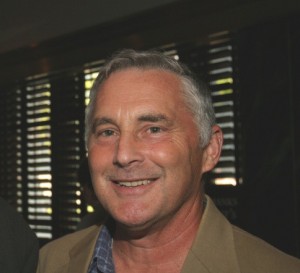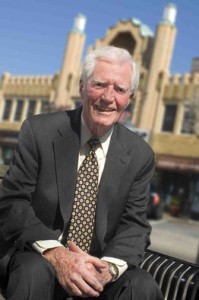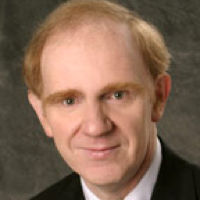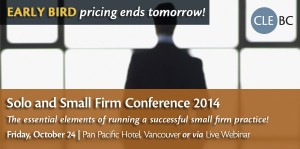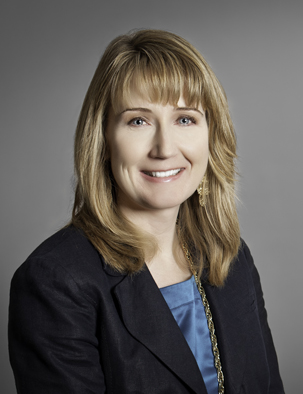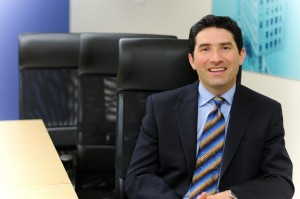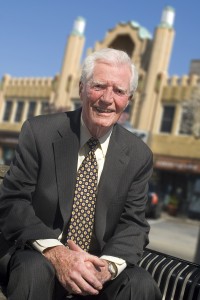♫ Walking in Memphis
I was walking with my feet ten feet off of Beale
Walking in Memphis
But do I really feel the way I feel? ♫
Lyrics and music by Marc Cohen.
The New York Times on Wednesday Jan 21 published an article “The Benefits of a Lunch Hour Walk” by Gretchen Reynolds. It has important implications for those feeling stressed, out of shape and suffering from a less-than-optimal mood. She states:
“A new study finds that even gentle lunchtime strolls can perceptibly — and immediately — buoy people’s moods and ability to handle stress at work.”
What is different about this study is that it doesn’t focus on long term results – it looks at the short term results of walking just 30 mins at lunch.
This study was published in the Scandinavian Journal of Medicine and Science in Sports and involved researchers at the University of Birmingham and other universities.
According to the abstract of the study:
“During the intervention period, participants partook in three weekly 30-min lunchtime group-led walks for 10 weeks. They completed twice daily affective reports at work (morning and afternoon) using mobile phones on two randomly chosen days per week.”
This is not getting out and running 6 miles at noon. It is simply walking – getting out of the office, hitting the sidewalks and taking in some (hopefully) fresher air, sunshine and conversation.
What did they find?
“Lunchtime walks improved enthusiasm, relaxation, and nervousness at work, although the pattern of results differed depending on whether between-group or within-person analyses were conducted. The intervention was effective in changing some affective states and may have broader implications for public health and workplace performance.”
Gretchen Reynolds stated:
“To allow them to assess people’s moods, the scientists helped their volunteers to set up a specialized app on their phones that included a list of questions about their emotions. The questions were designed to measure the volunteers’ feelings, at that moment, about stress, tension, enthusiasm, workload, motivation, physical fatigue and other issues related to how they were feeling about life and work at that immediate time.”
And what did they find from those who went for a walk?
“On the afternoons after a lunchtime stroll, walkers said they felt considerably more enthusiastic, less tense, and generally more relaxed and able to cope than on afternoons when they hadn’t walked and even compared with their own moods from a morning before a walk.”
All the volunteers showed gains in their aerobic fitness from the exercise. Unfortunately many could not continue with their exercise as they felt pressured by management to work through their lunch. Just a suggestion, but when it comes to improving people’s performance at work, perhaps management needs to take a walk…
-cross posted to tips.slaw.ca.
♫ They got alien technology to make the rainbow tables with,
then in an afternoon of glancing at ‘em, secrets don’t resist
the loving coax of the mathematical calculation,
heart of your mystery sent free-fall into palpitations.
Computron will rise up in the dawn, a free agent.
Nobody knows the future now; gonna find out — be patient…♫
Lyrics, music and recorded by: MC Frontalot.
This is part 2 of the predictions for 2015! In this second part we have predictions from yet another 16 thought leaders and with the 8 in Part I (and my humble contribution) that totals 25 exciting glimpses into the future!
In this post we have:
- Jordan Furlong
- Andrea Cannavina
- Garry Wise
- John Tyrrell
- Mitch Kowalski
- Stephen Gallagher
- Joseph Kashi
- Roger Smith OBE
- Andrew Clark
- Richard Granat
- Darin Thompson
- Colin Rule
- Zbyněk Loebl
- Euan Sinclair
- Bob Denney
- Shanon Salter
- …and yours truly!
Jordan Furlong
- The CBA’s Governing Council approves those recommendations of the association’s Futures Report related to non-lawyer firm ownership or sharing fees with non-lawyers.
- Law society benchers in Nova Scotia or Ontario (or maybe a western province) endorse changes in lawyer regulation and possibly in rules surrounding equity ownership of firms.
- The Supreme Court of the United States rules in favour of the Federal Trade Commission in a case involving regulation of dental services, calling into question US lawyer regulation systems.
- Wal-Mart follows the lead of its Canadian arm and starts leasing kiosk space to low-cost law firms in outlets across the US, making basic legal services more affordable and convenient.
Andrea Cannavina
1. The Cloud will be more than just about the cloud. The shiny object syndrome will wear off and users of technology will truly care about the location, access and duplication of their data.
2. Strong growth for windows based tablets/convertibles. All my laptops have been touchscreens –so I get why non computer people “get” tablets – I just don’t think they understand just how fast/useful a touchscreen is … when you have the power of a computer behind it. (Fingers crossed Santa brings me a Surface Pro 3!!!) 😉
3. Office365 will dominate email – especially small business/corporate – easily keeping email/calendar/contacts sync’d … (without scanning/indexing) – across all manner of devices.
For over 13 years Andrea has been helping practicing attorneys, law firm administrators, consultants and business owners with the selection and integration of processes, systems and technologies to get the paying work done. She answers questions regarding telephone/reception, client, file and email administration, time and billing; achieving and maintaining a professional web presence; getting paid; and setting up/maintaining many web based services and technologies aimed at attorneys and “legal”. Andrea is recognized as the CEO of LegalTypist, Inc. a NY based legal transcription and secretarial service and founder of The Legal Connection Community. You can learn more about Andrea at: http://www.andreacannavina.com and the Community at: http://www.thelegalconnection.com
Garry Wise
The Courts
2015 is bound to be a very interesting and busy year for Canada’s courts.
After the Supreme Court of Canada’s decision in Hryniak, we can expect to see increased reliance by Canada’s litigants on summary judgment procedures, and increased willingness by the courts to make final determinations on such motions. The civil trial may well be on its last legs, in most circumstances, in our nation.
We can also expect to see increasing openness in our courts to electronic filings and digital evidence. In Ontario, this week’s appointment of Mr. Justice David Brown to the Court of Appeal marks the ascendance of the Province’s most outspoken judicial champion of technological advance in the courts. We can expect genuine progress and continuing demand from the bench for technological modernization of Court administration and procedures.
Access to justice and the influx of self-represented litigants will continue to be themes of ongoing debate by the bench, bar and public.
Our courts will tackle a number of key policy concerns, from the constitutionality of assisted suicide and the nation’s new prostitution legislation to concerns regarding citizen’s privacy and the protection of the environment.
Law Societies
Our Law Societies will have their hands full in 2015, as the continuation of self-governance and the transparency of disciplinary proceedings become increasingly controversial issues in the media.
The slow drive toward alternative business structures will pick up speed in Ontario and elsewhere, but the time may not yet have arrived for non-lawyer ownership of law firms in the nation.
Our law societies may also find themselves busy with litigation of their own, as the status of the proposed Trinity Western University law school begins its long wind through the courts.
Lawyers
The legal profession will continue to find itself under serious competitive pressures in 2015.
Technologies will continue to emerge that automate services historically provided by lawyers. Large firms will continue to suffer from disruptive changes and we may see a few additional large firms implode unexpectedly.
Lawyers will continue to use social media with increasing effectiveness and the role of the Internet in facilitating legal research, delivering legal information, and providing a platform for online legal services will see a further spike in growth.
We will see more new lawyers starting their own solo practices, and the profession will find it necessary to provide increasingly formal mentorship programs and services to facilitate their transition to practice.
Garry J. Wise was called to the Ontario Bar in 1986, and practices with Wise Law Office (www.wiselaw.net), a Toronto litigation firm with focus on Employment Law, Family Law and Civil Litigation.
He is primary contributor to the award-winning Wise Law Blog, and is also developer of WISELII, Canada’s Mobile Legal Research Tool, a free iPhone application enabling users to research Canadian case law, statutes and regulations via CanLii.
Garry has contributed to Bar-eX News, SlawTips, Huffington Post, CCH Labour & Law Newsletter, Canadian Bar Association’s Solo and Small Firm Addendum, Divorce Magazine and CCH Canadian Family Law Guide.
He has been a Continuing Legal Education presenter for organizations including the Law Society of Upper Canada and the Ontario Bar Association on social media, legal ethics, Web 2.0, cloud-related security issues and legal innovation.
Garry has been featured in the National Post, Toronto Star, LawPro Magazine, Lawyer’s Weekly, Canadian Lawyer Magazine, CCH Student E-Monthly and Toronto’s Now Magazine.
In addition to his professional and blogging activities, Garry dabbles as a writer and musician.
Garry can be reached by email at gwise@wiselaw.net. Follow Garry J. Wise on Twitter: @wiselaw
John Tyrrell
#1 Continued economic and geo-political uncertainty will be the business story of 2015 resulting in businesses coming under increasing pressure to review the costs of doing business, and … OMG even the costs of legal services, both internal and external.
#2 Another shoe (NOT the “other shoe”, this is more like a centipede) will drop and another large Canadian law firm will go the way of Black and White TV, perhaps fondly remembered but gone none the less.
#3 The Canadian legal market place will see the expansion of existing “new law” alternatives and the addition of a number new players and different models in the market.
#4 This time next year we will still be waiting for the governing bodies of the profession to decide whether or not allowing law firms to seek “investors” or adopt more “business” oriented structures is a “good thing”.
#5 About September 1 I will be pulling out this list, shaking my head and wondering where I can take my crystal ball for a tune up.
These are interesting times … enjoy the ride. All the best in 2015.
John is a Corporate Commercial lawyer who has ridden the rollercoaster of energy prices and the Calgary legal market for over 30 years. He currently practices in association with Cognition LLP. jtyrrell@Cognitionllp.com
Mitch Kowalski
How does one even begin to make predictions in a legal industry that has continually defied prediction – in a bad way? Nonetheless, here goes:
1. The Law Society of Upper Canada will continue to dither on Alternative Business Structures and will make no decision on this creature in 2015;
2. One Canadian law school will create a Centre for Legal Innovation, similar to the Centre for the Study of the Legal Profession at Georgetown University, and will start collecting data on the state of the Canadian legal industry;
3. The Federation of Law Societies of Canada will float a proposal for one regulator across all common law provinces – Benchers across Canada will be furious;
4. Trinity Western University Law School will be successful in its court challenges – Benchers across Canada will be furious;
5. One Toronto law firm will fail – lawyers will lament the passing of a “great firm” and completely forget about the support staff;
6. IBM will work with a law firm somewhere in the world to further enhance Watson’s capabilities gained from the University of Toronto experiment. This will reduce the need for law firms to scale up through the ancient practice of hiring more lawyers;
7. Canadian undergraduate students will continue failing to undertake any due diligence on job prospects in the legal profession before applying to law school;
8. The bar outside of Canada’s urban centres will continue to “grey” and many practices will simply close down for due to inflated valuations and lack of purchasers;
9. Clio will go public; and
10. Loblaw will seek to replicate Axess Law by creating PC Lawyers.
Mitch was recognized as a Fastcase 50 Global Legal Innovator in 2012, and he is the author of the critically acclaimed American Bar Association best-seller, Avoiding Extinction: Reimagining Legal Services for the 21st Century. The American Bar Association will be publishing his forthcoming book, The Great Legal Reformation, in the Summer of 2015. Mitch is a principal of Cross Pollen Advisory which redesigns how in-house counsel deliver and buy legal services. He is also a visiting professor at the University of Calgary Law School where he teaches worldwide trends in the legal services market, and what they mean for lawyers and clients.
Stephen Gallagher
Since I left the New York State Bar Association ten years ago, I have been trying to hold conversations with senior lawyers about how the aging of the workforce is something that the legal profession can no longer ignore. According to Census Bureau estimates, nearly 80 percent of the baby boomers say they want to do some kind of work in retirement. So, instead of viewing retirement as an end-point in itself, law firms and their senior partners will be far better served by treating retirement as a series of developmental steps taken by individuals over an extended period of time. Put differently, retirement today needs to be seen as more a journey than a destination.
I am beginning to see results from these conversations. Law firms everywhere are slowly beginning to focus on finding the balance to keep key people at every stage of development. This will include discussing how the years leading up to retirement should be a period of time when senior lawyers can experience new growth opportunities for themselves—and properly handled, this process should benefit the broader law firm community in many other ways. The senior lawyers that many law firms are now looking to sunset may be the untapped resources firms need to lead the talent pool of the future.
I hope these conversations will continue.
Stephen P. Gallagher, is a principal at LeadershipCoach.us, an executive coaching consultancy that works with senior lawyers, practice group leaders, and other “high potential” individuals. Stephen is an Organizational Development professional that provides lawyers and law firms with a broad range of coaching services directed at facilitating positive change.
Stephen holds a Master of Science degree in Organizational Dynamics (MSOD) from the University of Pennsylvania. He has more than 30 years of experience in working exclusively with lawyers.
Stephen is also certified as a Retirement Options coach, and as such, he helps individuals focus on the critical aspects of non-financial retirement planning.
Based in Philadelphia, PA, Stephen’s practice is committed to partnering with clients in a creative process that inspires them to maximize their personal and professional potential and at the same time enhancing professional and personal satisfaction in achieving a more balanced life.
Stephen has conducted strategic planning programs with the American Bar Association, state and local bar associations, as well as The Law Society of England and Wales, and The Law Society of Scotland. In addition to coaching lawyers, Stephen is an adjunct faculty member in the Marketing department at St. Joseph’s University in Philadelphia.
Stephen has written extensively in areas as diverse as The High Performance Lawyer, Yesterday’s Strategies Rarely Answer Tomorrow’s Problems, and Winding Down the Law Practice, Planning for Retirement He has designed and facilitated numerous bar association and law firm retreats dealing with the changing nature of law practice. The National Association of Bar Executives (NABE) published Stephen’s two part articles, LPM Programs: an Inside Look and Bar Associations in Transition II. In December 2014, Bar Leaders, a publication of ABA Division for Bar Services published another of his articles, The rise of the laptop lawyer? Senior members, lonely bowlers, and a way forward.
Stephen P. Gallagher: sgallagher@leadershipcoach.us
Joseph Kashi
Roger Smith OBE
2015 is likely to prove a significant tipping point in the development of web-based assistance on law. We are likely to move decisively beyond the notion that the internet is like an electronic book and to start to mine its interactive potential. Investment will be facilitated by government ministries seeking to save on running costs of conventional legal aid schemes and, in the private sector, from consolidation among providers allowing greater capital investment plus – in those jurisdictions. like England and Wales, that allow it – external cash associated with external ownership. Specific predictions associated with different elements of the process are as follows. Notice how well British Columbia fares in the vanguard of change.
Diagnosis, referral, triage and information
Various jurisdictions will seek to hit the bar raised by the Dutch Rechtwijzer 1.0 and re-engineer websites so that they are interactive and user-focused. Among the leaders will be the transformation planned for the MyLawBC.com and trailed in its accompanying blog. Back home, our own citizens advice bureau are following a similar path in revamping their adviceguide.org site, also happily followed by a blog at alphablog.citizensadvice.org.uk. These sites will set off a virtuous competition among similar providers in which various US jurisdictions will also participate, no doubt with many funded through the Legal Services Corporation’s Technology Initiatives Grant programme (tig.lsc.gov) for which the provision of initial sites of this kind was agreed as a priority at a technology summit in 2013. The most ambitious sites will be in jurisdictions, like my own, where the profession exerts no restriction on the provision of legal advice by non-lawyers. These will take the lead in developing the various different pathways through which a user may be directed to resolve their problem. By the end of the year, initial advice websites that simply give information in linear form will begin to look old fashioned. Users will be well on the way to expecting legal advice tailored to their needs just as they now do in relation to queries about a flight with their favourite airline.
Virtual legal practice
Private practitioners in all developed jurisdictions will explore ways of delivering services over the net. This will facilitate jursdiction-wide brands and lead to further wastage among what we in England would call the ‘High Street practitioner’. Some will fight back with distinctive, niche or personalised service but there will be a move towards what future guru Richard Susskind has called the ‘latent legal market’ ie those who will pay for legal services if they are cheap enough.
Look for developments such as more loss-leading advice on websites; more use of video and visual; more integration of video communication between lawyer and client; more use of fixed fee ‘unbundled’ services; more integration of discussion communities with legal practices; and some possibly questionable referral arrangements between what are presented as not for profit organisations and associated for profit providers. Again in jurisdictions that allow it, look for third party legal advice providers in mass areas like will-writing, probate and conveyancing. They will use centrally located lawyers using a combination of document assembly software and video to undercut private providers – as they already do in the field of legal expenses insurance.
Digital Determination
Interest in online dispute resolution (largely forms of mediation) and determination (actual binding court decision-making) will continue to expand. Any number of jurisdictions, like my own in the form of a sub-committee of the Civil Justice Council, will set up committees to study how courts and tribunals might save money by moving online. They will all think that it is a good idea but wonder how the capital start-up costs might be met. A few brave jurisdictions will get started – notably British Columbia and its Civil Resolution Tribunal (CRT) and the Dutch Rechtwijzer 2.0 programme (see below). A lot more will wait to see how well they do.
End to end services
Both the CRT and Rechtwijzer 2.0 promise end to end services that will commence in 2015. Users will contact the system with a query and end by being taken through to determination – in the CRT’s case in small claims (and strata disputes) and in the Dutch case divorce. These are immensely ambitious programmes that are paradigm-busters in the sense that they transfer a search for legal advice on a problem to a search for determination of that problem. There will be problems along the way in terms of getting the pathways right; operating a workable fee structure; dealing with opposition from lawyers and judges; integrating independent legal advice; and handling the changing relationship that a user has with the system as their case progresses. So, the year may be dominated by consequent rows but the possibilities are really exciting.
Skills-related training
The use of internet-provided skills training to help users proceed through difficult processes will expand. Assistance in advocacy by self represented litigants is an obvious area and examples like lawassist.lawaccess.nsw.gov.au/lawassist/lawassist_index.html or the Alaskan assistance in family cases at aklawselfhelp.org will be built upon. Other jurisdictions will follow the BC’s Justice Education Society in providing online parenting after separation classes and in devising interesting ‘gamifications’ of assistance to those affected by litigation who are not themselves litigants such as children of a divorcing couple. JES’s ‘Changeville” has already been bought by the California Courts to join their suite of provision.
Co-operation and convergence
One of the features of 2015 will be the growing convergence one separate worlds with an interest in assisting people with legal problems. Legal aid will meet the advice sector in jurisdictions where these are traditionally separate. Court libraries will meet both in places like BC where they have a public role. Public Legal Education folks will work more closely with legal aid providers in jurisdictions like those in Canada where they have a strong presence. Profit and not for profit providers will fit co-operate in patterns of access to justice provision. The courts will link with anyone willing to help out with what they will see as a crisis of self representation.
Not only will there be convergence, there will be co-operation (or, in some cases, simple theft of ideas) as people realise that law may be supremely national but technology is global and knows no boundaries. So, you can (actually, you have) developed programmes in BC which show the way for England and Australia. And, at least for the moment, the Dutch have a moment in the sunlight as their commitment to legal aid and technology puts them in a lead position. They are also inveterately entrepreneurial. If you are interested in this field, 2015 could be the year when you could not go to a conference without meeting a Dutch salesperson. Good for them. It should also be a similarly good year for those behind innovation in BC – which, in my view, rightly shares top spot in the field.
Roger Smith is a London-based researcher, journalist, activist and consultant on access to justice and human rights. Editor bimonthly newsletter on latest developments for International Legal Aid Group. Author of the global survey, ’Digital Delivery of Legal Services to People on Low Incomes (thelef.org). Former director of JUSTICE and the Legal Action Group. Visiting Professor, London South Bank University. Awarded an OBE in 2009.
Andrew Clark
- Courts Move to Electronic Court files for criminal file:
- As a result of continued budget constraints in the Justice sector, there will be an accelerated push to use electronic court files in court. The focus will be in criminal court as most criminal court files are now electronic. There will be a mixture of response from the bar and the judiciary – some kicking and screaming while others will say it’s about time.
- Mandatory eFilng
- The BC Courts will once again consider mandating eFiling, at least for counsel in Supreme Court civil matters as well as the Court of Appeal. BC used to be the leader when they started eFiling in 2005. Many courts in Canada and the US have now surpassed BC in terms of uptake and several implemented mandatory eFiling in 2014. Time for the BC Courts to get back to a leadership position.
- Hyper sensitivity to cyber security in the Court
- While there are many opportunities in using technology to create a more effective and efficient justice system that can result in better access to justice, sensitivities around security will continue to hamper the pace at which these technologies can be deployed. While some of the sensitivity is definitely warranted, there are many instances of where it is unwarranted and the bar for electronic security is significantly higher than it ever was for paper files. As a result, the justice system will continue to lag behind many other sectors in their use of technology.
- eTrials?
- Well, I keep predicting this and hope one year it is actually going to come true. While electronic evidence presentation has occurred in the BC Courts since the late 90’s, we have yet to embrace the current technology that is available for eTrials, that starts with eDisclosure, eFiling, electronic evidence presentation, the ability for the court to receive and store evidence electronically and ending with eJudgments. It will happen! Maybe 2015 is the year.
Andrew Clark is an independent consultant specializing in management consulting and project management in the Justice Sector. Andrew has spent the last ten years providing management consulting for a number of clients worldwide. Andrew started his career over 20 years ago in software engineering as a specialist in user interface design. Andrew worked as an IT Director for the BC Ministry of Attorney General where he was the project director for the JUSTIN project, BC’s criminal case management system. After managing a software company for 8 years, Andrew started his own consulting company. Throughout his career, Andrew has focused on Project Management and Team Building within an organization. He is a UVIC graduate with a B.Sc. and an MBA. Andrew is also a Project Management Professional certified by the Project Management Institute and an associate faculty at Royal Roads University where he has taught project management education within the MBA program for 6 years.
For the past nine years, most of Andrew’s work has been in the Courts, highlighted by his work in British Columbia. He’s also had the opportunity to work with the Courts in Vietnam, Rwanda and the Yukon. Currently Andrew is managing the BC Provincial Court Scheduling Project.
Andrew has spoken at several conferences including the Court Technology Conference (CTC), the Canadian Forum on Court Technology, the Center for Legal and Court Technology Affiliates Conference and the Pacific Legal Technology Conference.
Email: andrewclark.willowtree@gmail.com
URL: http://www.linkedin.com/pub/andrew-clark/4/247/937
Richard Granat:
- The New ABA Commission on the Future of Legal Services will have little impact on the present structure of the legal profession in the United States.
- The American Bar Association will continue to defer any serious consideration of alternative business structures in the United States.
- The number of solos and small law firms that use a client portal to serve clients online will remain a relatively small percentage of the 600,000 solos and small law firms in the U.S.
- There will be continued resistance in the U.S. by state bar associations to non-lawyers providing direct services to U.S. consumers, despite the fact that 80% of consumers remain unserved by the legal profession.
- The majority of U.S. law schools will continue to prepare law students for large law firm practice, despite the fact that most of their graduates will end up in solo and small law firm practice. Despite the impact of legal technology on the delivery of legal services, most law schools will not teach this subject. As a result, law school enrollments will continue to decline.
Richard Granat is a lawyer and a recognized expert on the delivery of legal services over the Internet. He is also the Founder of Granat Legal Services, P.C., in Baltimore, Maryland, one of the first virtual law firms in the United States. He is also the founder and CEO of DirectLaw, Inc., a virtual law firm platform provider and Co-Director of the Center for Law Practice Technology. Florida Coastal School of Law.
Richard also had served as Co-Chair of the eLawyering Task Force of the Law Practice Management Section of the American Bar Association and is a member of the American Bar Association Standing Committee on the Delivery of Legal Services. In 2009, the ABA Journal recognized Richard as one of 50 Legal Rebels, throughout the Unites States – individuals who are engaged in changing the legal profession. In 2010, Richard received the Louis Brown Lifetime Achievement Award from the American Bar Association in recognition of his innovations in the delivery of legal services and in 2013, the ABA James Keane Award for Excellence in eLawyering.
Darin Thompson:
- Law students at the University of Victoria and Osgoode Hall will have access to new Legal Information Technology courses. Taught by a team of instructors that include an ODR expert, an electrical engineer / legal software entrepreneur and a legally trained Google software engineer, the courses will include broad introductions to technologies for use in the legal services, dispute resolution and justice administration sectors. Some coursework will include hands-on experiential learning with some existing products and applications. Students will also have a chance to engage in an application design exercise that will encourage them to imagine a new legal technology application to address an existing problem or an improvement to justice and legal services.
- Member States in the European Union will be required to implement Online Dispute Resolution (ODR) rules to give effect to the legislated ADR / ODR scheme for EU consumers.
- We should see a report on the suitability of ODR for civil disputes from the UK Civil Justice Council Advisory Group led by Richard Susskind. My own reflections on this subject can be reviewed in a series of articles published by the UK Society for Computers & Law linked from this page.
- The United Nations Commission on International Trade Law (UNCITRAL) ODR project will continue to struggle with seemingly intractable disagreements between some delegations over law and policy-related aspects of the ODR Working Group’s attempt to create a set of rules for low value, high volume disputes. These problems have been outlined well in a series of Slaw posts by Karim Benyekhlev and Nicolas Vermeys.
Darin Thompson is a lawyer with the Ministry of Justice in British Columbia, Canada. He has helped to initiate multiple projects using online dispute resolution (ODR) and is a member of the Canadian delegation to the United Nations Working Group on ODR.
In 2014/15, Darin will be co-instructing new Legal Information Technology courses at two law schools.
Darin also sits on the board of the Vancouver-based Justice Education Society.
Darin has BA and JD degrees from the University of Victoria and an LLM (Innovation, Technology & Law) from the University of Edinburgh.
Colin Rule:
Colin Rule
I work at the intersection of conflict resolution and technology.
I am the Chairman and COO of modria.com, an online dispute resolution service provider in Silicon Valley, building ODR tools like the Mediation Room and the Gebruikersjury. From 2003 to 2011 I was Director of Online Dispute Resolution at eBay and PayPal. I am a Fellow at the Gould Center for Conflict Resolution at Stanford Law School and I work closely with the National Center for Technology and Dispute Resolution at UMass-Amherst.
I’ve written a book on the subject: Online Dispute Resolution for Business.
I am @crule on Twitter, on Facebook and LinkedIn, and I blog at novojustice.com. Some of my writing and recent presentations are available at colinrule.com/writing/.
Zbyněk Loebl
Here is my prediction:
In 2015 there will be a breakthrough in Internet in relation to empowering customers. Customers will receive first mass-market tool which will start becoming popular in 2015 and will start a new industry. It will change completely the current ways of doing business on the net by making customers free and decisive in defining terms regarding privacy, customer dispute resolution etc. The tool will be extremely simple, very different from the current theoretic discussions on VRM (vendor relation management), yet implementing the ideas of VRM.
Next year will be extremely exciting, I feel it in the air, sg. like a year when the impressionists started to sell their paintings to the galleries…
Have a great Christmas time and best personal wishes for the next year, we will have fun.
I founded Youstice as a globally available tool for buyers and sellers to resolve their shopping issues easily and efficiently.
Previously, I was a member of Rowan Legal, a regional law firm in Central and Eastern European region, where I specialized in advising clients in technology-related projects. Prior to that, I managed an international team which prepared and implemented a new ADR Center for .eu related disputes attached to the Czech Arbitration Court. This ADR Center has become a sole ADR Provider approved by the European Commission. The ADR Center started its operations in February 2006 and so far has received over 1,000 complaints. The ADR Center is capable of administering .eu related disputes in all but one official languages of the EU (the exception being Maltese).
Euan Sinclair
Predictions for 2015:
- Ross Watson, associabot, will continue to cause equal measure of intrigue and concern within different parts of the legal profession. However, the commercial deployment of legal artificial intelligence (or LAI, as it will become known) will still be a decade away.
- To anticipate LAI, however, progressive law firms will begin thinking of legal processes as a critical path or decision tree (rather than something that is instinctive to lawyers) building on their work on Legal Project Management (LPM). Only law firms with a number of years’ experience of LPM will have sufficiently granular datasets to take advantage of LAI in the next decade.
- Client-facing LPM became table stakes for winning new work in Canada in 2014. But now progressive law firms’ own internal processes will become better managed by adopting Lean principles or Six Sigma, or a mash up of both. Implementation of these disciplines require strong law firm leadership and therefore we will see the rise of the professional law firm CEO.
- 2014 was a bad year for cybersecurity. More people than ever depended on the cloud and the “internet of things” became smarter, with all sorts of devices now sending and receiving data from the cloud. Also hackers’ sophistication became more fully appreciated, particularly after the Sony hack. Law firms will therefore consider using encrypted emails or secure portals on a private cloud to communicate with clients. Whether Blackberry succeeds or fails in the handset market will be a sideshow. The company will retrench and grow with its expertise of secure software and servers, leading to it being acquired by Microsoft in 2015 or 2016.
- On the macroeconomic front, Canada will experience severe headwinds in the economy. It is sad to see Canada falling into the same trap as the UK, whose economy was very successful before 2009 but heavily dependent on financial services and real estate. At the same time, the UK allowed its manufacturing base to erode. Canada today is just as dependent on resource extraction and real estate and is unable fully to take advantage of the battered loonie. The recent depreciation in commodity futures will continue to take its toll in 2015. We will see a rise in interest rates towards historic norms–perhaps sooner and sharper than most people expect.
- There will be a “grey swan” financial shock in 2015 (choose from any of the ten known potential flash points). Maxed-out Canadians are almost uniquely badly positioned to weather any economic storm, far less a maelstrom. There will inevitably be a real estate correction in 2015, but it will take some time to percolate as sellers hold on to their anchor prices, leading a glut on the supply side before prices slide precipitously. Oversupply of commercial real estate will also cause a problem. Consumers will start to shift their shopping habits towards online shopping or clicks ‘n mortar fulfillment centres, exacerbating the decline.
- The “more-for-less” demands from clients will increase and finally penetrate, when some large firms lose lucrative and long-standing clients to more agile rivals. Smart clients will appoint panels of law firms by competitive tender and get them to collaborate for the client’s benefit, while maintaining competitive tension amongst them. Law firm selection will be handed to procurement officers, who don’t have buddies from law school.
- In this unhappy climate, some law firms may seek a defensive merger to paper over the cracks of their inefficiencies, but the heyday of law firm mega-mergers is over.
- If Heenan Blaikie’s demise taught us anything, it’s that a drop by as little as 15% of profit per partner can put the bonds of partnership under strain. Another lesson from Heenan Blaikie and also Bingham McCutcheon is that leading law firms are ready and willing to adopt a vulturistic approach and cherry pick the practice units they want without having to deal with legacy issues that arise in a merger.
- With a weakened loonie and some firms in financial distress, there will be increased International interest in the Canadian market for US and UK law firms. Those firms are five years ahead in adapting to the new economic reality and therefore they will make considerable inroads into the market. UK-based law firms will find the Canadian market especially of interest, as Canadian markets open up to the European Union when the Comprehensive Economic and Trade Agreement (CETA) is ratified towards the end of 2015 or in 2016.
- At the other end of the spectrum, 2015 will be the year of innovative start-up law firms. These agile firms will start offering à la carte legal services for new areas such as M&As. “Wal-Mart” law, introduced by Axess Law will gather pace as those firms anticipate being able to attract outside investment in the near future–and perhaps float on the TSX-V.
- I will complete the manuscript of my new book on how lawyers can create value in the digital economy.
Euan Sinclair was a lawyer for 15 years in Scotland before moving to BC in 2011 to become Director, Knowledge Management at Lawson Lundell LLP. He also holds an MBA from Edinburgh University and a LLM in IT law from Strathclyde University, where he was taught by, amongst others, Professor Richard Susskind. Euan called at the BC bar in September and specializes in technology law.
Bob Denney
- Two of the hottest practice areas will be Energy – all forms including “clean” – and Elder Law because we’re all getting older.
- Big firms will continue to discuss mergers with smaller firms but some of these will not happen and some of the recent mergers will fail. A repeat of my prediction for this year..
- The continued growth of technology will mean more non-lawyers and entities will provide efficient and reasonably priced legal services.
- Cybersecurity will become the number one concern for all firms, regardless of size.
- Mid-size and smaller firms, as well as solos, will capture more of the legal market because of: 1) Technology and 2) Lower rates than the large firms.
- Corporations and large non-profits will continue to expand their legal departments and keep more work in house.
- Non-lawyer ownership of, or at least investment in, U.S. law firms will continue to be a hot issue and will eventually be approved. A repeat of my prediction two years ago.
- Applications to law schools will continue to decline.
- More women lawyers will be selected for firm leadership positions and the overall income of women lawyers will increase substantially.
Shannon Salter
Shannon Salter is the Chair of the Civil Resolution Tribunal. She earned her BA (2001) and LLB (2005) from the University of British Columbia, and her LLM from the University of Toronto (2011). Ms. Salter clerked with the British Columbia Supreme Court, practiced litigation at a large Vancouver law firm for several years, and has served as a vice chair of the Workers’ Compensation Appeal Tribunal . Ms. Salter is also a commissioner of the Financial Institutions Commission, vice president of the British Columbia Council of Administrative Tribunals, and a past board member of the College of Registered Nurses of British Columbia. She teaches administrative law at the UBC Faculty of Law as an adjunct professor and has been actively involved in providing pro bono legal advice and representation throughout her career.
David J. Bilinsky
With everyone’s great predictions, coming at the end of the post is a bit of a challenge! However, there is a theme to my predictions and they are breaking barriers. Here goes:
- The courts and judges will further appreciate the change that technology hath wrought and is continuing to make in the legal arena and that they will not be immune to these changes. This is only enhanced by the powerful voices calling for increased access to justice and affordable justice for all. By way of breaking barriers, there will be an ever-growing realization that part of this solution will be for greater implementation of technology at all points in the court process from e-filing all the way to seeing Online Dispute Resolution as an alternative method to resolving matters in court. Certain members of the judiciary will oppose these changes while other members will see this as a necessary first step or series of steps that need to be taken to modernize and bring the civil and criminal dispute resolution process into the present and provide more affordable justice to all.
- That law school application numbers across North America will continue to decline as increasing numbers of bright young minds realize that better opportunities lie elsewhere. Some law schools will resist any changes to how they educate while more enlightened schools will break out of the black letter law barrier and start addressing the growing voices that law schools incorporate technology, business, entrepreneurship and innovation into their programs.
- A Law Society or two in Canada will break the barrier on non-lawyer ownership of law firms and allow Alternative Business Structures in Canada. The UK experiment will flourish here in Canada and as a result, there will be the emergence of new entities that provide legal services on different points on the price/demand curve.
- The biggest law firms in Canada realize that the playing field has dramatically changed and that there has been a gradual power shift in favour of the clients that will rework the economic model of these firms. Furthermore the latest generation of lawyers will increasingly reject climbing the pyramid hierarchy with its uncertain path from associate to partner and venture out into smaller more nimble niche practices (and into ABSs).
- Watson will not only be a barrier-smasher, the reverberations will reach deep within the legal profession. “Disruptive innovations are innovations that transform products that are complicated and expensive into things that are affordable and accessible” per Clayton M. Christensen at Harvard Business School has stated. Once Watson has emulated lawyers and can do what we do better than we can (computer can already play chess better than the best of the best) then whomever owns that technology will forever change the legal landscape.
- Online Dispute Resolution will continue to expand into new tribunals and forums, both private and public. ODR’s ability to resolve disputes quickly, easily and inexpensively will keep breaking down barriers once different entities realize that eBay’s ability to resolve millions of disputes using ODR techniques can be replicated in different settings.
- In another barrier-smashing exercise, in order to address access to justice issues, the proposed merger of the Society of Notaries Public of British with the Law Society of British Columbia will occur and the joint entity will create new niche providers of discrete legal services with qualifying examinations and designations. This will be looked at carefully by other jurisdictions seeking to promote access to justice.
Thanks to everyone for chipping in and providing their best predictions for 2015 and beyond. However as well all know no one knows the future…we just have to be patient and live it!
Happy Holidays, Merry Christmas and Happy New Year!
Part 1 of the Predictions can be found here.
♫ I can see clearly now, the rain is gone,
I can see all obstacles in my way
Gone are the dark clouds that had me blind
It’s gonna be a bright (bright), bright (bright)
Sun-Shiny day…♫
Music, lyrics and recorded by Johnny Nash.
This is the best time of the year in terms of being able to ask so many dear friends to put on their thinking caps, gaze into the future and share with us their vision for what is in store for the legal profession in 2015!
We received so many great ideas that this post is going to be published in two parts. Part 2 will be published on Monday Dec 22, 2014.
Thanks to all these thought leaders whose visions will be here in Part 1 or Part 2:
- Sharon Nelson
- Nicole Garton
- Ross Fishman
- Dr. Frank Fowlie
- Michael McCubbin
- Nikki Black
- Andre Coetzee
- Simon Chester
- Jordan Furlong
- Andrea Cannavina
- Ann Halkett
- Garry Wise
- John Tyrrell
- Mitch Kowalski
- Stephen Gallagher
- Roger Smith
- Andrew Clark
- Joseph Kashi
- and yours truly!
And without any further ado, here are the predictions!
Sharon Nelson:
- Cybersecurity is now universally the chief worry of large firms. We have already concluded that we cannot keep determined intruders out. While law firms will continue to try to keep them out, 2014 showed the mantra shifting to “detect and respond.” My prediction for 2015 is that those who hack into our systems will spend a lot of time and effort to make detection harder. What do you do when breaches are all but invisible, even to the best of the best? I suspect we’ll find out.
- The popularity of tablets that can really take the place of a laptop (I wouldn’t travel without my Microsoft Surface Pro 3) will soar.
- Now that IBM has announced that Watson will enter the legal market, you can bet that Watson will replace humans at an ever-increasing rate. Watson can do the legal research and analysis in near real-time, can predict outcomes (should you settle or go full steam ahead?) and search data to determine the probable budget for a case. The list goes on and on, but I believe Watson is a much greater danger to legal jobs than Legal Zoom and its brethren.
Sharon D. Nelson, Esq. Sharon D. Nelson, Esq., is the President of Sensei Enterprises, Inc, a digital forensics, information security and information technology firm in Fairfax, Virginia. Ms. Nelson is the author of the noted electronic evidence blog, Ride the Lightning and is a co-host of the Legal Talk Network podcast series called “The Digital Edge: Lawyers and Technology” as well as “Digital Detectives.” She is a frequent author (twelve books published by the ABA and hundreds of articles) and speaker on legal technology, information security and electronic evidence topics. She was the President of the Virginia State Bar June 2013 – June 2014. She may be reached at snelson@senseient.com.
Nicole Garton:
- There will be continued uptake of mobile devices, cloud computing and social media by lawyers in small, mid-size and large firms alike.
- In an age of decreasing loyalty, ubiquity of information and outsourcing, technological advances will permit smaller firms to outperform their large and mid-sized competitors as more efficient, cost-effective deliverers of legal services.
- And the billable hour is not dead and has no chance of extinction anytime soon, despite what pundits may say on www.slaw.ca and otherwise!
Nicole Garton is a lawyer, mediator and parenting coordinator and practices in the areas of wills, estates and family law matters.
Nicole is the principal of Heritage Law, which has been described in the media as “one of the most streamlined, automated and forward thinking legal business models in Canada.” Nicole has won awards in recognition of Heritage Law’s innovative structure and effective use of technology, including the Canadian Bar Association BC Branch Work Life Balance Award and the Business in Vancouver Top Forty Under 40 Award. Nicole is also the principal of Heritage Trust, which will provide executor, power of attorney, trustee and escrow services, commencing sometime in mid 2015.
Ross Fishman:
1. IBM’s Watson technology will become the legal profession’s game-changer technology.
It may take a while, but it will ultimately provide every small-town solo generalist with the same insight and expertise possessed by the highest-level, most narrowly focused specialist at the world’s largest law firms.
Dr. Frank Fowlie:
I’d like to offer prediction that one of the areas ripe for the adoption of ODR is with Sport. In Canada we have a very well developed and respected technology assisted ODR system with the Sport Dispute Resolution Centre of Canada. The SDRCC is established in the Physical Activity and Sport Act, and has been in existence for over 10 years.
The SDRCC deals with disputes ranging from doping discipline cases, to team selection, athlete carding, or general dispute resolution. The SDRCC does technology assisted mediation and arbitration. I am a mediator with the Court of Arbitration for Sport (CAS) out of Lausanne, Switzerland. My view is that Sport, either through National Sports Organizations, National Olympic Committees, Multisport Games, or International Sport Federations will increasingly turn to ODR.
I foresee that the SDRCC Canadian built technology will serve as a model for the above noted sporting bodies. Presently, for example, CAS opens an Ad Hoc court at the site of an Olympic Games some two weeks before competition to be able to deal with athlete or team accreditations. ODR would allow for a longer window, with the Ad Hoc members still in their home locations. I think that ODR can also be helpful to CAS when it potentially dealing with participants from across the globe who now must convene in Lausanne for mediations or arbitrations. For example, a sport dispute could involve activity in a multisport games in South America, with competing team from Oceania and Africa, with a named mediator from North America, and a court registry in Switzerland. There is great complexity and expense in drawing all of these parties to one spot at one time for a mediation.
ODR provides an opportunity for prompt, cost effective and relevant dispute resolution.
http://www.crdsc-sdrcc.ca/eng/home
Happy New Year!
Dr. Frank Fowlie is presently the Ombudsman at the International Organization for Migration in Geneva. He was previously the inaugural CEO of InternetOmbudsman.Biz. In addition, Frank Fowlie was the inaugural Ombudsman at the Internet Corporation for Assigned Names and Numbers(ICANN).
ICANN is the agency which administers the global domain name system which serves as the backbone for the Internet. He served as the Ombudsman from November 2004 to January, 2011.
Michael McCubbin:
I will step out on a limb and join those whose names can go down in history for the inaccuracy of their predictions. Let me toss out a few and hope that I hit on one of them:
- All clients will begin asking questions about data security as concerns proliferate and more lawyers become digital. Lawyers are reasonably good about it, but the problem remains that most of our efforts are frustrated by the insecurity associated with services like Gmail which our clients often use. I have only had 2-3 clients who even bothered using my secure client portal in Clio – I think the insistence on this kind of option will appeal more to clients now that we see how Jennifer Lawrence and Sony feel about weak data security.
- We are going to start seeing larger tablets and way more touchscreens (touchscreens will become the norm in new devices in 1-2 years)it only took 5-6 years for colour screens to take over in the cell phone market). Why is the standard tablet not 8.5×11”? People think I have a large, ancient laptop with my 17” screen, but the reality is that I want the screen space to read and work with multiple documents. I was just speaking to my dad this morning, who is raving about my mom’s new Microsoft Surface Pro 3. It looks great and its features are those of future devices, but I want a bigger screen. In the office, I set my 17” laptop next to a 24” external monitor for an extended desktop, and I still would like my laptop screen to be bigger.
- Courts will continue to move (far too slowly) toward digital practices and not just in the admission of digital evidence…PPT in court, paperless communications, etc. I did a Passenger Transportation Board hearing last week. Virtually all pre-hearing matters and even the exchange of much of the evidence during the hearing, occurred via email. It was much easier and more convenient for all involved, particularly as it involved over 20 different parties (lawyers, clients, and Board members/staff included) spread around the province.
- Apps geared toward delivering tangible value to clients and not just making lawyers’ lives easier. There have been a few launched and crashed (like Launch Lawyer), but there is room for someone to make a move in this market in a substantive way. There are many ways in which apps could be rolled out to the client’s benefit, but lawyers are not getting into this, likely for the same reason that many of us do not even know how to type.
- We will find out if Ross is the real deal: http://www.theglobeandmail.com/report-on-business/industry-news/the-law-page/university-of-torontos-next-lawyer-a-computer-program-named-ross/article22054688/. OK…maybe we’ll only get a taste next year, but if this is the kind of product that can be scaled and rolled out to the legal profession for a subscription fee similar to that of Clio, Quicklaw, etc., then it will change things. It will take the grunt work out of lawyering, mean that the quality of research conducted will not be nearly as important as actual human judgment and analysis once that research is done. That will mean that a lot of large law firms will not need to hire droves of articled students, junior associates, and paralegals. It will also mean that productivity will dramatically increase, so clients will get more bang for their buck.
- Increasingly user-friendly lawyer software. This will include integrating DMS, chronology generators, discovery documents (including XFD transcripts) and making it really usable with tools like hyperlinking etc. Software like PC Law or Worldox is not nearly as user-friendly as Clio or the kind of simple, effective UIs we see in most mobile apps. The fact that a device as complex as a smartphone comes without a user manual should tell you just how user-friendly our software should be.
Michael draws on a broad variety of life experience that allows him to understand and relate to most clients that walk in the door.
He opened his office with the view that there was a better way to practice law, one that avoids the needless expense of conventional law firms and focusses on client outcomes. Today, his clients value things like not being charged for printing and file storage fees, as well as the responsive, efficient service associated with a digital practice that still has a bricks & mortar office in a Vancouver heritage building.
Michael frequently speaks on legal technology issues and participated in one of the first paperless Court of Appeal hearings in British Columbia. He is an active member of the Trial Lawyers Association of BC and sits on its Legal Aid Action Committee.
Niki Black:
In 2015, lawyers will become more comfortable with the concept of web-based computing and will increasingly utilize cloud computing software to help manage and streamline their law practices. Similarly, wearable technology will make its mark on the legal profession and upon the release of Apple’s Watch in early 2015, you’ll see more lawyers incorporating smartwatches into their daily workflow.
Nicole Black is a Rochester, New York attorney and the Legal Technology Evangelist at MyCase.com, a law practice management software company. She is the author of “Cloud Computing for Lawyers” (2012) and co-authors “Social Media: The Next Frontier” (2010), both published by the American Bar Association. She also co-authors “Criminal Law in New York,” a Thomson West treatise. She writes a weekly column for The Daily Record and has authored numerous articles and has spoken at many conferences regarding the intersection of law, mobile computing and Internet-based technology.
Andre Coetzee:
Here are some of my predictions:
- The amount of data that is produced and stored has increase exponentially over the years. Having one centralized search tool that can search any data a user has created or has access to both on their local network as well as data that is stored on the Web i.e. a user can search and get quick access to their data whether it be an email, in a proprietary database or in a Word document is going to be a trend.
- The ability to be able to integrate legacy legal applications therefore getting rid of duplicate data entry and preserving data integrity.
- More people want to use whatever device they want at work. The trend of bring your own device (BYOD) will therefore continue and is becoming the norm. This BYOD trend will also drive more firms to seek online services and products so as to simplify integration.
- Bigger focus on going paperless and being more efficient process wise. This will reduce costs and increase efficiency.
- More and more lawyers starting smaller boutique firms. The smaller law firms will be leverage technology and internal processes and practices to be more efficient which will impact their bottom line. They will also change and be more creative the way they bill their clients. They will also be innovative the way they practice law (depending on the law they practice) by coming up with products and services that can be quickly and more easily produced and customized.
- PC sales will continue to decrease and mobility devices such as tablets, smartphones, Ultrabook’s will continue to increase – this is driven by BYOD
- The hype is over and hence more firms will move from on premise IT infrastructure to hosted products and services. Security, disaster recovery and backup, management costs and standardization being the biggest drivers for the move.
- A heighted awareness regarding compliance and security for Canadian law firms using Cloud Services.
- Firms who are have on premise PCs don’t move to Windows 8 and wait for Windows 10. The start button is back in Windows 10 and hence be an easier transition for firms.
- The Canucks will win the Stanley Cup – we can always live in hope 🙂
Andre is a director of i-worx. i-worx is a premium managed service provider focusing on enhancing productivity through virualization infrastructure solutions. OfficeOneLive i-worx’s flagship solution affords companies the ability to access virtual desktops in the data centre
Specialties:Project Management, Business Analysis
Simon Chester:
- The Ipad becomes the device of choice in law firms. So long PCs.
- Blackberry’s revival sputters. Lawyers are among the last to abandon their beloved devices.
- The first significant external investments in Canadian law firms happen in Halifax and Winnipeg, when Slater & Gordon establishes a bridgehead in North America. Toronto firms are still waiting for their Law Society to make a decision, and to figure out the fine print of regulating entities not individuals. Or rather both individuals and their firms.
- Another Canadian firm follows Heenan Blaikie over the cliff. Could it be in the oil patch?
- Other Canadian Law Societies follow the leads of the Nova Scotia Barristers Society, the Law Society of Manitoba, the Barreau du Québec and the Canadian Bar Association’s Futures Report in completely rethinking their regulatory stance, encouraging innovation unless there is an obvious threat to consumer interests or professional values. American observers are horrified. English and Australian commentators see Canada as just playing catch-up.
- Privacy Commissioner lambastes law firm security precautions in light of major data leaks from hacking attacks.
- Biometric password protection becomes a standard precaution. And firms no longer hand out unencrypted flash drives.
- TWU Law School sets up to train paralegals and legal technologists. Unless it can become a faculty of dentistry.
- Supreme Court of Canada further constitutionalizes the status of the legal profession in its decision on the application of money-laundering laws to the profession.
- A major Bay Street law firm will discover Twitter.
AND
The Seventh Pacific Legal Technology Conference is a huge success – not much of a prediction that one.
Simon Chester is a law firm general counsel who has spent most of 2014 helping manage the largest law firm dissolution in Canadian history. His earlier career included law teaching, government service, senior positions in bar associations and organisational consulting.
For twenty years, he has helped law firms navigate the complex and shifting landscape of professional regulation and solve an array of professional crises that threaten regulatory compliance, liability risk and reputational harm. He is one of Canada’s leading experts on conflicts of interest. With roots in three continents, he is a global lawyer, qualified in both Europe and North America.
Simon is a frequent commentator, writer and master presenter, delivering high-energy, provocative presentations to legal conferences around the world about change in the law and the pressures that firms face.
A technological innovator throughout his career, he has earned an international reputation for his insights into the future of legal practice.
Thanks to everyone who contributed and helped all of us part the clouds of the future so we can see clearly now! Stay tuned gentle reader…Part 2 will be published on Monday!
♫ If you should see me walking
Through your dreams at night
Would you please direct me
Where I ought to be
I’ve been looking for a crystal ball
To shed the light
To find a future in me…
To find a future in me…♫
Lyrics and Music by: Tommy Shaw, recorded by Styx.
To say that we have been thru a tremendous time of change in the legal profession is a wee bit of an understatement. Furthermore I believe that the rate of change is accelerating. This means that the changes that are coming at us like a Tsunami are totally unprecedented. New competitors, new business structures, new technology, new ways of resolving disputes, new ways of communicating, new devices and services…there is hardly a corner of the legal profession that will not be impacted. Then there are all the pressures from outside the legal profession to increase access to justice and bring the legal system within reach of the man on the Clapham Omnibus. Of course a tremendous time of change is also a tremendous time for opportunity.
Last year we heard from:
- Jordan Furlong
- Ross Fishman
- Sharon Nelson
- Ann Halkett
- Richard Granat
- Nicole Black
- Colin Rule
- Brian Mauch
- John Zeleznikow
- Michael Downey
- Robert Denney
- Mitch Kowalski
- Buzz Bruggeman
- Andrew Clark
- UnitedLex
- and yours truly!
It is precisely at this juncture that I am calling on my friends, colleagues and readers to submit their predictions for 2015 in order that all of us can benefit by the collective thoughts and gaze into the crystal ball to shed the light ..and see where we stand …in order to find a future in all of us..
♫ Boy, you’re going to carry that weight,
Carry that weight a long time
Boy, you’re going to carry that weight
Carry that weight a long time…♫
Lyrics and Music by Lennon & McCartney recorded by The Beatles.
This is a guest post from Ann Mehl and originally appeared in her Newsletter and blog under the title “The High Note“. To say that it struck a note is putting it mildly. I hope you find it to be as moving and reflective as I did. It is reproduced here with her approval and consent.
While scanning the radio in my car for a good song, I stumbled upon an interview with Paul McCartney. He was funny and engaging, so I stopped to listen for a while. He was asked about his voice, and if, at age 71, he could still sing all those old Beatles songs. His answer was honest and revealing. “Well,” he said. “I can’t hit all the high notes like I used to, but I’ve probably got better technique now, and you learn ways around that.” Some of those techniques? Changing the melody ever so slightly, letting his back up singers hit the high notes for him, or simply calling upon his audience fill in the blanks. Music legend Sir Paul McCartney has had to learn that even he has musical limitations.
This got me thinking: How much of our lives are spent trying to chase a high note that we are no longer capable of hitting? And what does this cost us in terms of health and happiness? In my own life, I know I hit a high note when I ran my first marathon at 3:26, a personal record for me. It’s unlikely I will ever do it again, and that’s okay. I’m interested in different goals now. But it can be very hard to let go of who we used to be, or who we imagine we still are. We see it all the time in professional sports: the athlete who retires, only to “unretire” six months later. The boxer who wants “one more fight” when everyone around him knows he should have quit years ago.
Most of us are not athletes or professional performers, but we do know what it’s like to chase our former glories, and to hunger for that intoxicating high note. Maybe it’s the version of ourselves that is 10 years younger, or 20 pounds lighter. Maybe it’s the earlier excitement of a new job, or the rush of a new romance. Most of us yearn for these peak experiences, and once experienced, seek to recreate them.
That’s not necessarily a bad thing, but it can lead to a lot of frustration and heartache in the present. The problem with chasing only these moments, is that they are generally very fleeting, if they exist at all. And we can miss out on some of the really great moments happening in between. Martina Navratilova said it best: “The moment of victory is much too short to live for that and nothing else.”
I knew of one serial entrepreneur who made a killing on his first venture, to the tune of almost $10 million. He went on to create several other successful companies after this, but none as big as the first. Measured against this impossible standard, he felt he was constantly failing, even when, by all outward signs he was a massive success. To his family and work colleagues, he had become a bitter pill who could not enjoy his own success. He was enslaved to the high note, in his case, some arbitrary number below which anything spelled failure. He was Sisyphus, compelled to roll an immense boulder uphill, only to become demoralized every time it rolled back down on top of him.
There are two basic roads that we can travel: one is the road to freedom, and the other is the road to tyranny. The road to tyranny is based on always hitting the high note, and a refusal to accept anything else. It enslaves us to the past, and blinds us to new opportunities in the present. After all, who are we if we can no longer hit the high note? The road to freedom, on the other hand, accepts that all things are in a constant state of flux: our bodies, our minds, our relationships. What we are able to do in our 20s and 30s is very different from what we can do in our 40s, 50s and beyond. And not only is this okay, it is natural.
At the root of all unhappiness is our refusal to accept that all things eventually must end: our youth, our beauty and eventually even ourselves. What we are really fighting against is our own mortality, and that is one battle we will never win. But like Paul McCartney, maybe we can learn some new techniques. We can accept that while a relationship has changed, it does not necessarily have to end. We can accept that while a job is no longer as exciting as it once was, it may offer its own kind of reward in the people we meet. We can accept that through age or infirmity, a parent is no longer the person we once knew, and try to develop a new connection based on who they are now.
I’m not suggesting we give up or don’t stretch ourselves, only that we don’t have to be slaves to our past successes (or failures). Graceful surrender to the here and now is always preferable to screeching, or God forbid, ruptured vocal chords. Paul McCartney may not be able to hit the high notes like he used to. All he can do is make friends with the voice he has now, and the many beautiful notes he still can sing. And when the voice cracks, or won’t go where he wants it to go, he invites the audience to sing along.
—
Thanks Ann for reminding us that unless we learn to gently acknowledge and adjust to the fact that we may not be able to hit the high notes like we used to, we will be carrying that weight a long time…
(Hat tip to Stewart Levine for originally drawing my attention to Ann’s article).
Thought for the Day: “In the end, the love you take is equal to the love you make” – Paul McCartney.
♫ I only need to tell myself
See what the future holds… ♫
Lyrics, music and recorded by S.P.Y.
Just a note that the 2014 Solo and Small Firm Conference early bird rate ends tomorrow…!!
This is a CLE-BC conference and we have worked quite hard on the content and the speakers. This is for anyone running or in a solo or small firm practice or thinking of launching one.
This is the latest in a series of Solo and Small Firm Conferences that have been hosted by CLE-BC. It only comes around every 2 years.
We have outstanding speakers including the Past President of the CBA Fred Headon doing the lunch keynote on the implications of the CBA Futures Report for solo and small firms (by Skype!).
You can attend in person or virtually.
Topics include Business School for Lawyers – what they didn’t teach you in Law School; Managing the Finances – Making the Numbers Work, Law Office Management and Technology, Marketing Ethically, Dealing with the Self Represented and Freeman on the Land, Solo and Small Firm issues and a guest presentation by the founders of the Axess Law Firm in Ontario – who have ’embedded’ a law practice inside a number of Wal*Mart stores in Ontario.
This is a fresh look at solo and small firm practice…and an exciting one.
As the conference chair, I welcome you to the conference and I am looking forward to seeing you all there. Come and see what the future holds!
♫ Even though you’re going through hell
Just keep on going
Let the demons dwell
Just wish them well…♫
Lyrics by Neil Peart, music by Geddy Lee & Alex Lifeson, recorded by Rush.
Yesterday I taught the first class of the 2014 term on legal technology for the Internationally Trained Lawyer’s Program at the University of Toronto law school. We started the session with everyone giving a bit of background on who there are, where they went to law school, what type of law they practiced in their home country and hope to practice following their call here in Canada and what their background was in technology. They also had to provide one quirky fact about themselves that no one would know which provided a light-hearted fun aspect to the course.
Notwithstanding the humour introduced by the quirky question responses, two factors struck me in listening to the stories of these bright and enthusiastic lawyers…one of which being the challenges and personal sacrifices that they had undertaken in order to cross half the globe and seek qualification here in Canada. The second aspect was how deeply technology has penetrated how we practice law in Canada and the enormity of their task – to not only learn a new legal system but to learn how one interacts with that system using the myriad of tools and technologies available to us.
There is the analogy of the boiling frog – if you put a frog into a pot of hot water, the frog will immediately leap out. But if you put a frog into a pot of cold water and slowly increase the temperature, the frog apparently does not realize what is happening…the frog slowly adjusts to the increase in temperature (ultimately for its detriment…but I digress). The point is that technology has grown up around us to the point where we take it all for granted.
It is only when you are faced with the prospect of learning all that we take for granted that you realize how lawyers in Canada have adjusted to incorporating technology into all that we do. Unfortunately there are still a number of lawyers who do not embrace the benefits of technology and what we can achieve on behalf of our clients by applying technology appropriately. It is sad that some of this group wear the distinction of not knowing how to use technology as some kind of mark of distiction.
It also makes one realize the efficiencies and effectiveness that we have achieved as a result of incorporating technology into the practice of law. We have been through a tremendous period of change from the time of the introduction of the first personal computers into practice. Now with the Internet, collaborative technologies, social media, cloud computing and all the mobile devices from smartphones to iPads and Android devices, we have new and innovative ways to practice from wherever we are with clients that are scattered all over the globe.
I can’t think of a more exciting time to be a lawyer in Canada. I am encouraged and humbled by the determination of those in this cohort to come up to speed with all aspects of how to practice law in Canada. I wish them well!
(Cross posted to slaw tips.ca)
♫ more productive
comfortable
not drinking too much
regular exercise at the gym (3 days a week)
getting on better with your associate employee contemporaries
at ease
eating well (no more microwave dinners and saturated fats)
a patient better driver…♫
Lyrics and Music by: Thom Yorke, Jonny Greenwood, Ed O’Brien, Colin Greenwood and Phil Selway, recorded by Radiohead.
I don’t know about you, but I have been largely disillusioned by the ‘traditional’ ways of trying to be more productive. They have come to feel like, well, candy-coated panaceas. And frankly, if they worked, then all of us would be a whole lot more productive. But, at least for most of us, they don’t. I suspect – if I am any example, that they don’t work for the majority of us because at the heart, we need fresh ways to get more productive than the ‘make up a to-do list’ every morning before you start work..yadda yadda….
So it was encouraging to read “Six Ideas For a More Productive Work Day” by Kit Hickey, co-founder of Ministry of Supply on CEO.com. Seems she has been trying to figure out how to be more productive, too. Oh and she noticed that her well-being and happiness at the workplace was tied to her productively.
Her first suggestion? Work out Regularly. This one REALLY resonated with me. You see, I had some surgery this last November. Awaiting the surgery, I had to curtail my activites by necessity. Before this, for the last 30 years I have been a runner. More particularly, I ran at noon. I was happy and productive. I LOVED running at noon. But waiting for the surgery, I had to revert to the lifestyle of eating my lunch at my desk and working working working …long hours – 12 hours most days with no real workouts or breaks. Could I say my productivity climbed as a result of the long hours? No. Was I happier at my desk? No.
Kit said that her best ideas came to her when she was running. I totally agree! My columns, papers and articles largely began as ideas on a run. Running made Kit feel more productive and creative. I echo that correlation. It also increased her well-being.
So the first hacker tip to get more productive at work: is to get away from it. Go for a run (or swim or whatever works for you). Tune up your body and let your mind think freely. I think you will be amazed at how this can change your life.
Kit’s other suggestions? Take meetings outside of the office. She schedules meetings with exercise classes. Wow.
Mix it up – don’t just work from your desk in your office. Find out what works for you and give yourself permission to follow those ideas.
Bring your dog to work. Well, ok, here I would have to say that I don’t have a dog. I am terribly allergic to them. So – Kit – this one is all yours. I can understand what you are trying to do here.
Evaluate work output, not desk time. Yes Yes Yes! We have been telling lawyers to move away from billable hours as a metric of work for some time. Why ? It is an input metric..”how much time did you put into something”..rather than ..”what did you achieve in that time?” If you evaluate results (and not just effort) you have moved yourself into a new paradigm. You can adjust your billing as well to bill for results and not effort.
Her sixth suggestion? Set aside distraction-free blocks for creative work. Again I can’t agree more. Block off your calendar for specific tasks, tell the office ‘no interruptions’ unless it is truly an emergency and give yourself permission to go at the matter at hand.
She advises that you shouldn’t be afraid to experiment. After all, as Sherlock Holmes would say: “How often have I said to you that when you have eliminated the impossible, whatever remains, however improbable, must be the truth?” If the ‘traditional’ ways of trying to be more productive are impossible, then whatever remains, however improbable, must be the truth.
(cross-posted to www.tips.slaw.ca)
♫ He’s got this dream about buyin’ some land
He’s gonna give up the booze and the one night stands
And then he’ll settle down, in some quiet little town
And forget about everything…♫
Lyrics, Music and recorded by Gerry Rafferty.
New Year’s Resolutions? Phfft. Been there, Done That, Got that T-Shirt.
We all resolve to get fit, lose weight and spend more time out of the office etc etc etc. Speaking personally I have had my fill of resolutions that are born from the best of intentions but then die a cold hard death on the shoals of life.
So here goes: The Hacker’s Guide to New Year Resolutions: How to make real change in your life.
First step: Realize that you do things the way that you do because of how you are: the way you find things enjoyable or appealing or not, the way that you reward yourself for doing certain things and avoid others, the way that you find that you are too tired at the end of the day to get out and head to the gym etc etc etc. In other words, it is the structure of how you go thru life that determines, to a large part, how you do things (or not, as the case may be). The problem with New Year’s Resolutions is that you set up goals without putting into place the mental supports that would allow you to change. If you don’t change the structure of how you do things, don’t expect things to change.
Second Step: Make ONE and ONLY ONE resolution and make it YOUR priority to get ‘er done before the first quarter is over. Stick it on your monitor. Put it on the top of your ‘To Do’ list. Think about it. Often. Take small steps towards it every morning *(not every day because that is how you let it slip it down the priority chain – because at the end of the day you will realize that yes, once again there it is sitting on the To-Do list)*.
Third Step: Schedule time in your calendar to work on it for 15 mins every Monday to Friday (inclusive). Rework and restructure your time, your schedule and how you approach life and work to intentionally fit in the time (and the energy) to achieve this one goal.
Fourth Step: Most of all, hold yourself responsible for making this happen. You have to change how you work before you can expect other things to change. So resolve to not only change this ONE thing but also – resolve to change yourself. Use this resolution to be the motivation to implement change, starting with you.
Fifth Step: Once you have achieved this ONE resolution, celebrate it! Give yourself a reward for getting the job done. Make sure you make yourself feel good about achieving this change (*in yourself*).
Sixth Step: Resolve to change something else. You don’t need to wait for a special day in the year to keep the changes happening. You are becoming – reworking – yourself into a person who can implement change. Congratulations. Now get started on your future!
(originally published on www.slawtips.ca).
♫ One of these things
Will tell you something.
Let`s tell the future
Let`s see how it`s been done.
How it`s been done…♫
Lyrics, Music and Recorded by Serena Ryder.
(image used per licence from VectorGems)
I so look forward to this time of the year when so many friends contribute their ideas for what the future will hold for us in the New Year! This year we have predictions from:
- Ross Fishman
- Richard Granat
- Nicole Black
- Sharon Nelson
- Colin Rule
- Ann Halkett
- Brian Mauch
- Jordan Furlong
- John Zeleznikow
- Michael Downey
- Bob Denney
- Mitch Kowalski
- Buzz Bruggerman
- Andrew Clark
- UnitedLex
- David J. Bilinsky
It is great fun to see what others are thinking in terms of where the legal profession is heading. So without further ado, let’s see how it’s been done:
Ross Fishman
My predictions:
#1 Post-merger local-firm marketing will increase:
- Today, more than five years into the legal profession’s Merger Frenzy, the smaller acquired firms are realizing that many of the promised benefits of the mergers, e.g. cross selling new legal services from The Mothership, haven’t materialized — they’re on their own. Further, they’re actually in a negative position regarding visibility in their local markets because they traded their hard-earned local name recognition for a big-firm brand.
- Unfortunately, although you are now part of a 1000-lawyer national firm’s proud 100-year tradition, it doesn’t help you generate business if no buyers near you have heard of the firm. Frustrated that The Home Office doesn’t feel their pain (or acknowledge the problem), and tired of waiting, they’re starting to hire their own marketers to build the new brand in their local market.
#2 Significantly more mid-sized and large firms will build their new websites in open-source technology like WordPress or Drupal than any particular web developer’s proprietary software.
#3 I predict that nearly every single law firm in an entire geographic region will proudly showcase their “unique culture and differentiation” by rotating a collection of smiling photos of their lawyers on the home page of their new websites.
The CEO of Fishman Marketing, Ross Fishman has an international reputation as one of the legal profession’s most-effective branding experts, web developers, and marketing strategists. His creative online and traditional marketing campaigns help law firms dominate their markets and drive millions of dollars of additional revenue.Fishman Marketing has designed campaigns for upwards of 200 law firms worldwide, and presented nearly 300 marketing programs, firm retreats, and CLE/Ethics presentations. A former litigator, marketing director, and marketing partner, he has received dozens of marketing awards, including the Legal Marketing Association’s grand prize, the “Best of Show” honor, five times.
A Fellow of the College of Law Practice Management, in 2006, Ross was the first marketer inducted into the LMA’s Hall of Fame.
Richard Granat
- I predict that some, not all, law schools will continue to reinvent legal education by incorporating training in legal technology and legal education.
- New courses in document automation, legal project management, legal services redesign, legal expert systems, and ediscovery management will infiltrate the law school curriculum to train law students for 21st century law practice.
2013 predictions by Nicole Black:
1) Mobile computing will continue to transform the way that lawyers practice law and manage their practices. Of all emerging technologies, mobile computing has been the one technology that was most quickly embraced by most lawyers. Most lawyers now use mobile phones in their law practices and even federal court judges in their 80s now use iPads while on the bench to conduct legal research and view briefs with hyperlinked case citations. With the increase in the use of mobile devices, more and more attorneys will utilize mobile apps or software with mobile integration, such as PDF annotation apps, law practice management software, and legal research products. Lawyers will use mobile devices to increase their productivity and will be able to practice law and run their practices no matter where they happen to be. There will also be a continuing tension between the convenience of 24/7 access and finding the right balance between work and home life.
2) 2014 will be the year that lawyers begin to move to the cloud at rates never before seen. In 2011 I predicted that by mid-2013 the mindset of lawyers regarding the cloud would finally change and lawyers would begin to view the cloud as a secure, more convenient and affordable alternative to traditional server-based systems. Based on results from surveys such as the 2013 ABA Legal Technology Survey and anecdotal evidence, I believe that occurred. But Snowden’s revelations regarding NSA’s spying certainly had a stifling effect on lawyers’ views toward cloud computing. Even so, the proliferation of cloud computing software can’t be denied and lawyers are increasingly realizing that the benefits outweigh the risks. I expect that trend to continue in 2014 and that the legal cloud computing market will really open up and move ahead at a fast pace by the year’s end.
3) The need to understand social media and the major platforms will become a much higher priority for many lawyers–especially litigators–as the impact of social media on their cases continues to rise. There will be a push by most law firms–large and small alike–to educate their attorneys about using social media both in their cases and to promote their practices. Lawyers will actively seek out information about social media with the goal of using it as a tool in their cases, both during the discovery phase as a tool to obtain useful evidence to support their clients’ cases and also at trial when researching jurors.
4) While practicing lawyers will continue to embrace new technologies and take steps to educate themselves about the ways that new technologies can help their practices, most law schools will, unfortunately, take the opposite tack. Enmeshed in institutional patterns with little to no incentive to change, the majority of law schools will continue to teach law as they’ve always done. Very few will change their curriculums to incorporate teaching law students about new technologies or the practicalities of running a law practice. Preparing students with the skills needed to practice law in the 21st Century will take a back seat to the desires of law school decision-makers to increase short-term monetary gains rather than invest in the future of law students and the legal profession as a whole.
Nicole Black is a Director at MyCase, a cloud-based law practice management platform. She is an attorney in Rochester, New York, and is a GigaOM Pro analyst. She is the author of the ABA book Cloud Computing for Lawyers, co-authors the ABA book Social Media for Lawyers: the Next Frontier, and co-authors Criminal Law in New York, a West-Thomson treatise. She speaks regularly at conferences regarding the intersection of law and technology and can be reached at:
Email: niki@mycase.com
URL: http://www.mycase.com
Sharon Nelson
2013 Predictions by Sharon Nelson:
- Smart entrepreneurs (like those who founded Novus Law)will siphon business that used to belong to large law firms.
- “Encryption by default” will spread throughout the Internet – a good thing and thank you to the National Security Agency, which provided much of the motivation for the trend!
Sharon D. Nelson, Esq.
Sharon D. Nelson, Esq., is the President of Sensei Enterprises, Inc, a digital forensics, information security and information technology firm in Fairfax, Virginia. Ms. Nelson is the author of the noted electronic evidence blog, Ride the Lightning and is a co-host of the ABA podcast series called “The Digital Edge: Lawyers and Technology.” She is a frequent author (ten books published by the ABA and hundreds of articles) and speaker on legal technology, information security and electronic evidence topics. She is the President of the Virginia State Bar June 2013 – June 2014.
Colin Rule
#1 – The US Affordable Care Act website will finally work seamlessly, and government contracting of web services will shift firmly to outsourcing instead of insourcing.
Ann Halkett‘s Predictions:
- We will see more education with Canadian content on the eDiscovery process targeted towards lawyers and paralegals. This will likely originate in eastern Canada, but will be available across the country via webinars.
- More firms will obtain software to assist in dealing with eDiscovery files or update existing software to take on eDiscovery.
- More firms will recognize that they require best practices, established processes, staff, and lawyers dedicated to the specialized area of eDiscovery to avoid costly mistakes, keep up with competitors, and meet client demands.
Ms. Halkett is a senior paralegal with 19 years of experience. She is the Litigation Support Coordinator with Alexander Holburn Beaudin + Lang LLP. She has a bachelor’s degree in History from the University of Victoria, a certificate in Journalism from Langara College, paralegal certificates in Litigation and Conveyancing from Vancouver Community College, is certified in Summation and LAW PreDiscovery and works with a number of litigation support programs. Ms. Halkett is also the past chair of the BC Legal Management Association Litigation Support Subsection and has written and presented at numerous CLEs.
Email: ahalkett@ahbl.ca
Brian Mauch:
- I predict that more law firms will adopt secure forms of cloud computing. This will complement the recent trend of lawyers using multiple mobile computing devices to access their data from anywhere.
- I also predict that more small law firms will implement document management systems, in order to manage the massive quantities of email sent and received by each member of the firm.
Jordan’s Predictions:
Batter up! Last year in this space, I made five trips to the plate, offering predictions about the Canadian legal market in 2013. Let’s see what the scoresheet shows.
- Two more Canadian firms will join global law firms through merger. In the event, one did: Fraser Milner Casgrain joined Dentons in March 2013. Double.
- Ontario’s introduction of a Law Practice Program to complement articling will lead two other provinces to follow suit. Nothing at all happened here. Strikeout.
- The Canadian economy will start really slowing, leading to retrenchment and cuts at big firms. I’m hearing reports and seeing evidence of this retrenchment all over the place, although no major firm announcements have come yet. Single.
- Canadian firms will accelerate lateral hiring efforts. The latest import from the U.S., overpaying free-agent partners to produce quick revenue fixes, is still growing, but not as dramatically as I expected. Call this a Walk.
- Quality Solicitors will expand its operations from the UK to Canada, offering franchise business support to solo and small-firm lawyers. I swung for the fences here, and came up empty. Strikeout.
So in the result: no runs scored, but the bases are loaded with two outs. Let’s see if I can get something across the plate in 2014.
- At least one law society will announce plans to relax restrictions against non-lawyer ownership of law firms. I’d be pleasantly surprised if a law society went so far as to approve full-scale Alternative Business Structures — that would be a Shot Heard ‘Round The Country — but at the least, I do think we’ll see the first serious crack in lawyers’ monopoly on law firm equity ownership.
- New lawyer employment will fall off drastically. A slowdown in business, a squeeze in profits, and a growing unwillingness of clients to pay for unskilled lawyer talent, will all combine to drive articling and associate hireback numbers to their lowest levels in recent memory. Combined with huge challenges encountered by new graduates trying to hang out their own shingles, this will help accelerate the next trend:
- Canadian law schools will be galvanized to provide skills training and legal career preparation. Led by forward-looking schools like Calgary and Queen’s, clinical legal education programs at several other faculties, and the new Integrated Practice Curriculum at Lakehead, law schools under huge pressure from students to counteract diminishing job prospects will start adding new credit courses that provide a “practical” element to their curriculum.
- A second provincial law society will follow Ontario’s lead and prepare to formally license independent paralegals. The actual process of approving and setting up a paralegal licensing and education system will take some time, as Ontario has demonstrated; but one law society will signal its intention to expand access to justice by granting at least partial autonomy to non-lawyer paralegals.
- And finally, my annual long shot: LegalZoom or RocketLawyer will launch full-scale Canadian operations, either in B.C. or Ontario, offering online interactive legal document services and throwing down the gauntlet to both regulators and the solo and small-firm lawyers they intend to either co-opt as partners or take on as competitors.
Change is unquestionably accelerating in the Canadian legal marketplace. The question is no longer whether we’ll see shifts in the structure and behaviour of the market for legal services here. The questions are when, how fast, and how far.
Jordan Furlong is a principal with Edge International and a Senior Consultant with Stem Legal Web Services. He has delivered dozens of dynamic and provocative presentations on the future of the legal market to law firms, law societies, state bars, legal organizations, law schools, judges, and a wide range of legal professionals in Canada, the U.S., and Australia. His blog, Law21, has been named six straight years as one of the best 100 law blogs by the ABA Journal, the only Canadian entry to be so honoured. A Fellow of the College of Law Practice Management, he is a guest lecturer at Queen’s University Faculty of Law in Kingston, Ontario, and the Legal Innovation Strategist in Residence at Suffolk University Law School in Boston.
Email: jordan@law21.ca
Blog: Law21
John Zeleznikow
- Rather than concentrate upon developing new technology, our efforts will be focused upon governance, ensuring our children are secure and happy and use the technology appropriately
- One US law school will announce a masters (LLM?) in Legal Process Management
- Some insurer will announce that it is automating its process for obtaining an initial offer to settle claims, using a virtual server
- The largest law firm in the world will surpass 4500 lawyers (a 10% increase in one year), and probably 5000 lawyers
- Law firm mergers will continue to increase, and at least three major US law firms will fail
- One large law firm will suffer a major data breach
- Five more jurisdictions will adopt the Uniform Bar Exam, effective by mid-2015
- By this time next year, I will be removed from the chair position of the Law Practice Division . . . .” At least then I know that one of my predictions will be accurate.
- The over-supply of lawyers, at least in the United States, will work its way down.
- Big firms will continue to discuss mergers, including more international ones, but some of these will not happen and a few of the completed mergers of the last few years will fail.
- While the number of lawyers may not increase, the total market for legal services will continue to grow because new laws and regulations will be passed and there will be more non-lawyers and entities that can and will provide them.
President Bob Denney is the founder of Robert Denney Associates, Inc., a firm that has provided management, marketing, and strategic planning expertise to over 900 law firms, offices and legal organizations throughout the United States and in parts of Canada and the Caribbean. Twice a year his firm publishes the highly regarded reports on “What’s Hot and What’s Not in the Legal Profession” around the world.
Email: bob@robertdenney.com
URL: http://www.robertdenney.com
Mitch Kowalski
Kowalski’s Predictions for 2014:
I have learned many things over the past 24 months, one of which is that I’m terrible at making predictions! Check that, I’m terrible at making short-term predictions. Because all of the things that I have predicted in the past on this blog will come true, just not as quickly as I had hoped. So, what to do for 2014? Keep on predicting….
- Cognition LLP and Conduit Law will continue to expand in the marketplace at a growth rate significantly higher than that of any other firm in the country. By 2025, both firms will be among the top 5 Canadian law firms by number of lawyers.
- I still believe that one well-known mid-sized or large-sized Canadian law firm will disband. Note that I say “disband”, rather than “explode”. Disbanding will occur when enough key partners at the firm decide there are greener pastures elsewhere and the firm disintegrates thereafter.
- The forward-thinking remainder of the disbanded firm in number 2 above, will rise from the ashes in the form of a new model law firm.
- No Canadian law firm will merge with a US or other international law firm.
- I am still calling for one law society to approve the adoption of Alternative Business Structures (“ABS”) for law firms. Look to Nova Scotia as the leading light in this matter.
- Benchers of the Law Society of Upper Canada will receive the report of its committee on ABS and will vote that more study needs to be undertaken.
- The 2014 Law Practice Program in Ontario will flop badly at both schools offering it. This is due mostly to the last minute nature of how it was sourced by the Law Society of Upper Canada which does not give the successful proponents enough time to create a coherent and well-run program for 2014.
Mitch Kowalski is an innovative thinker, writer, speaker and lawyer. He is the author of the critically acclaimed, ABA best-seller, Avoiding Extinction: Reimagining Legal Services for the 21st Century. He speaks regularly on legal service innovation as well as blogging on legal matters for the National Post’s blog, The Legal Post and on innovation in legal services for Slaw.ca. Mitch’s print articles have appeared in Lexpert Magazine, The National, The Advocate, The Hong Kong Law Journal, The Globe and Mail, and the National Post. He teaches innovation in law at the University of Calgary Law School and at the University of Ottawa Law School. Mitch is one of the co-founders of lawTechcamp Toronto, a co-ordinator of LawSync and was selected as one of the Fastcase Top 50 Global Legal Innovators in 2012. Follow him on Twitter @mekowalski for information about innovation and law.
Email: mekowalski@rogers.com
URL: http://kowalski.ca/
Buzz Bruggerman:
Buzz’s Prediction:s
- Within 5 years, big screen TVs will be free. They will be sponsored by advertisers and will include chips that will make it impossible to change channels during commercials.
- The ROI is very simple, say a set costs get driven down to say $400 for a 42” set. Assuming say a 4 year useful life, then cost per year is $100, or $.27 per day. This cost of acquisition for a commercial sponsor will be peanuts, and something that the advert world will be all over.
Buzz Bruggeman is one of the co-founders of ActiveWords. He graduated with honors from Coe College and from Duke University Law School. He runs all of the outward facing aspects of ActiveWords, including marketing and partnering, and as such is responsible for evangelizing ActiveWords to everyone he meets. Buzz has spoken at many tech industry events, has been on the advisory board of the Demo Conference, won a Demo god award, and has been featured in books by Dan Gillmor and Robert Scoble. Buzz has been a long time participant in the startup and blogging community, and routinely speaks and consults on using new media tools to market and evangelize software. Buzz is an active mentor in the Techstars program.
Email: buzz.bruggeman@activewords.com
URL: http://www.activewords.com/company.html
Andrew Clark:
Andrew’s Predictions:
- Could this be the year that enough lawyers want to do e-trails (not just electronic evidence presentation) that the judiciary and the courts really embrace technology in the courtroom? Here’s hoping.
- This is the year – wireless access in courthouses.
- Uptake of civil e-filing to BC courts tops 40%.
- Why not – lawyers and judges embrace a new assignment court model in 2014 and make it a success for the courts.
Andrew Clark is an independent consultant specializing in management consulting and project management in the Justice Sector. Andrew has spent the last nine years providing management consulting for a number of clients worldwide. Andrew started his career over 20 years ago in software engineering as a specialist in user interface design.
Andrew worked as an IT Director for the BC Ministry of Attorney General where he was the project director for the JUSTIN project, BC’s criminal case management system. After managing a software company for 8 years, Andrew started his own consulting company.
Throughout his career, Andrew has focused on Project Management and Team Building within an organization. He is a UVIC graduate with a B.Sc. and an MBA. Andrew is also a Project Management Professional certified by the Project Management Institute and an associate faculty at Royal Roads University where he has taught project management education within the MBA program for 6 years.
For the past eight years, most of Andrew’s work has been in the Courts, highlighted by his work in the British Columbia as well as work in the Vietnam Courts. Andrew has been the Project Manager for the British Columbia eCourt program, a portfolio of projects co-sponsored by the Judiciary and Court Services Branch. He also worked on the JUDGE Project – a CIDA funded project working with the courts in Vietnam – where he was responsible in overseeing the design, procurement and implementation of Digital Audio Recording in 3 courtrooms. A highlight in this project for Andrew was the establishment of a users group, without any senior officials, and creating a culture of users able to express their views in order to improve the solution for audio recording in the courtroom.
He is currently working with the Yukon Courts as well. Andrew has been and continues to be a member of several national committees and working groups for the Canadian Centre for Court Technology and the Association for Canadian Court Administrators. He has spoken at several conferences including the Court Technology Conference (CTC), the Canadian Forum on Court Technology and the Center for Legal and Court Technology Affiliates Conference.Email
Email: andrewclark.willowtree@gmail.com
URL: http://www.linkedin.com/pub/andrew-clark/4/247/937
UnitedLex:
UnitedLex Market 2014 Predictions:
UnitedLex predicts an increase in outsourcing as law firms recognize its intrinsic value and cost-cutting capabilities and as corporations begin to implement fixed fee budgets for law firm services.
They include insight on:
1. Outsourcing on the rise and the need for managed services
2. Law firm innovation
3. Law school innovation
4. Cybersecurity
5. GC priorities and the budgeting process
Detail:
Law Firm Innovation
Law firms increase their partnership with Outsourcing providers. With GCs moving to a fixed-fee model for law firm services, we see law firms giving up the specialized services that they used to perform – such as eDiscovery, document review, legal research, etc. — and relying on LPOs to perform these functions. They are consolidating these services vs. having these services in-house. In the age of bigger cases, heavier workloads and demand for faster outcomes, law firms are beginning to realize that they cannot possibly meet the desired client service levels while maintaining profitability. Further, more and more case studies are demonstrating the ability of LPO/LSO to revamp business models resulting in cost savings of 50%. In 2014, they will pursue more long-term, strategic engagements – as opposed to using different vendors on a case-by-case basis for tactical, transactional work. This pay-as-you go consumption model will help firms control costs, improve quality and efficiencies, and increase profitability.
Attitudes change towards lower-level associates or non-practicing lawyers. Due to increased costs and declining billability, firms are cutting non-practicing lawyers, such as litigation support personnel, who are typically under-utilized and under-qualified. In addition, job functions typically held by lower-level associates (which include doc review, contract management, legal research, etc) at law firms will be outsourced to managed services providers.
Law firms slash IT budgets. As part of this trend, we’ll continue to see more and more law firms slash their IT budgets as they realize that increased overhead costs (high rents, salaries) and inaccurate risk/exposure forecasting is leading to lower revenue per hour. We are seeing law firm CIOs are faced with two critical tasks: How to reduce spend while increasing security. This is driving law firms to adopt cloud-based services that can be managed more efficiently and cost-effectively by outside providers as if they were managed internally.
Law firms begin to focus just on offering core services. As corporations look to reign in legal costs, there will be a focus on law firms who just practice law and offer subject matter experts. We’ll also see some innovative firms take steps to eliminate unnecessary spending by proactively reducing the amount of data being processed for e-discovery, resulting in a six- to seven-figure cost reduction per case which will help firms more accurately forecast total legal costs after e-discovery.
Cybersecurity and the legal industry
Increasing attacks on the corporate “soft underbelly”: More corporations will follow Google’s lead in 2014 and beef up their internal and network security protocols to prevent external attacks (e.g., hacking, social engineering), but also to prevent internal compromise (e.g., disgruntled employee leaving a firm and taking info with them). This increased focus on corporate security will cause hackers to seek out a corporation’s “soft underbelly” – including service providers like law firms – and concentrate attacks there. In 2014, UnitedLex predicts more law firms will increase security spending – both at the IT level and on employee training – to better detect and protect against an increase in attacks.
BYOD attacks will increase: As personal mobile devices proliferate within the workplace, 2014 will see an increased number of attacks on iOS and Android devices, which are used by lawyers to access secure corporate email and data networks, and which could have valuable information stored on them by note-taking or voice-recording apps. We saw numerous attacks in 2013 affecting law firms and corporations. BYOD-specific security software has been created to address this problem, however hacker attacks evolve faster than security. Law firms will have to develop and implement strict BYOD policies and procedures, setting aside convenience for better security.
Efforts to minimize risk and exposure from third-party vendors: We see a consolidation in the number of third-parties with whom law firms contract to provide services. In order to minimize the risk of a breach, we believe that more firms will strategically partner with end-to-end solutions providers, as opposed to using multiple-point solutions on a tactical, per-case basis, so they can limit who can access, store or otherwise manipulate sensitive data.
How firms can protect themselves and ensure strict vendor security compliance
· Vendor contract: Ensure contract has protections and assurances firms need regarding information access, what happens if there’s an incident, what access the firm would have to the vendor’s network to conduct its own investigation, etc.
· Hire consultant to physically inspect physical and IT security controls, evaluate policies and procedures, conduct frequent audits before sharing data
· Be aware of what information is actually being shared with third parties before it is shared
· Ensure that a vendor’s security protocols equally address people (training, internal security), processes and technology
GC Budgeting and Spend
GCs begin to maximize ROI from e-discovery projects. In 2014, we’ll begin to see organizations start to understand how to maximize ROI from their e-discovery projects as they understand the financial risk and potential exposure of e-discovery, and take proactive measures to manage spend. Already, GCs are realizing that the key to managing spend is enterprise data management, which starts at the corporate level and with inside counsel, and working with providers who can help reduce data volumes and more accurately predict TCO of e-discovery.
GCs keep a more watchful eye on costs to optimize their legal budgets. We’ll begin to see GCs look at internal spend vs. what they outsource as budgets tighten. They will focus on optimizing spend with outside counsel—only spending for counsel while outsourcing more and more lower level associate work to LPOs. GCs more than ever are looking at the internal vs. outsourcing perspective.
The shift from per-gig model to a fixed-fee model for e-discovery services. From a budgeting perspective, per-gig pricing will still play a heavy role in purchasing decisions in 2013, but will begin to move to a fixed-fee model in 2014. GCs are beginning to realize that this type of pricing model is a short-term fix (12 months) and does not address larger issue of enterprise data management. There is little cost savings for GCs because the large data volumes negate any potential savings from low per-gigabyte costs. In 2014, we’ll see GCs look at ways to strategically manage data volume and larger data management issues, which will greatly lower costs, and communicate this to procurement.
In the past, GCs focused just on legal strategy and litigation management but in 2012 and 2013, we began to see GCs focus on compliance, security, information governance, strategy areas that GCs had less responsibility a few years ago. There are now a multitude of issues in a GCs budget that a GC focuses on and we’ll continue to see this into 2014.
The rise of the LSO. We’ll begin to see more GCs outsource more and more services to legal services outsourcing providers vs. firms who just do legal processing. GCs are not just outsourcing their processing to today’s legal services providers. They are outsourcing a variety of functions including eDiscovery, document review, legal research, etc. that would normally be reserved for law firms to providers that can perform these functions. As GCs look to optimize spend, we’ll begin to see a shift towards services directed to these managed services providers (LSOs), as GCs begin to realize the strategic value that these LSOs have.
Law School Trends
Consolidation of law schools. LSAT applications will continue to decline in 2014. This will have a significant financial impact on law schools who must continue to pay for tenured professors and adhere to ABA requirements for a large, resource intensive library. As 80-85% of the law schools in the US are operating at a deficit, we’ll begin to see a consolidation of law schools that are not able to make their numbers.
Externships decline. Because Law schools are operating at a deficit, we’ll begin to see fewer and fewer externships as law firms strapped by corporations tightening their budgets begin to refuse to pay for these externships.
We’ll continue to see fewer jobs available for graduates. Corporations will refuse to pay the high rates that law firms charge for low to mid-level legal work normally handled by junior associates. This will force law firms to find a more cost-effective way of doing the work, such as outsourcing, which leaves fewer entry-level law firm jobs for graduates. Those that do get hired will not benefit from having learned these tasks, and therefore will have limited understanding on how they are done – creating inefficiencies.
Law Schools partner with services providers to help with job skills for after law school. In 2013 we saw law schools partnering with services providers to expand training for students in skills and technologies they would not normally learn on the job. We’ll continue to see this in 2014. Like a medical residency program, this gives law students real-world practical experience, exposure to actual legal matters, and hands-on experience of working in their field.
UnitedLex is a global company with a singular mission to improve the performance of law departments, law firms and academic institutions. We provide unparalleled solutions to address the risk, efficiency and effectiveness goals of our clients in North America, Europe and Asia. Our more than 1,500 attorneys, engineers and consultants drive economies of scale and knowledge in the areas of litigation, contracting, intellectual property, general legal and operations to deliver seven and eight figure benefit to our clients. Founded in 2006 and with more than $250 million in assets, UnitedLex deploys the right blend of service and technology in supporting the world’s leading corporations and law firms. UnitedLex is the only full service LSO recognized by Chambers & Partners as a Tier One/Band One legal service provider.
Email: information@unitedlex.com
David J. Bilinsky
Like Jordan, I am going back to my predictions for 2013 to see how well I did …so here goes. Here is a short list of last’s year’s predictions with comments (Came True, Coming True, Still Waiting or Strikeout):
#10 Law Schools will embrace distance education as a way to expand their market and to bring in sessional lecturers that ordinarily would be cost-prohibitive:
Still Waiting: I haven’t seen a big uptake in distance education in 2013 with perhaps the University of Toronto Law School being a positive exception. However, I think that this will come true in time.
#9 Education in Law Schools will incorporate greater MBA-related training:
Coming true: I think with the new Law Practice Program in Ontario we are moving to more of a skills-oriented legal education that will incorporate more of an emphasis on practising law including required business management skills.
#8 Non-lawyers involved in the delivery of legal services:
Coming true: Ontario and BC are currently expanding the ability of paralegals to render legal services. I believe this will be matched in other Canadian and American jurisdictions. I also believer that other near-legal professions will call for greater powers to render legal-type services in order to match the increasing need for affordable access-to-justice (such as Notary Publics in BC).
For example, the Benchers of the Law Society of BC in December, 2013 approved the following task force recommendations:
- The Law Society and the Society of Notaries Public of British Columbia seek to merge regulatory operations.
- That a program be created by which the legal regulator provide paralegals who have met specific, prescribed education and/or training standards with a certificate that would allow them to be held out as “certified paralegals.”
- That the Law Society develop a regulatory framework by which other providers of legal services could provide credentialed and regulated legal services in the public interest.
#7 Lawyers as Leaders:
Coming True: The CBA with its Future’s Initiative is starting the dialogue on having the profession consider its role in society including a greater emphasis for lawyers to take on a future interest in leadership.
#6 Effect on Judiciary / Court services:
Coming True: The new Online Dispute Resolution / Alternative Dispute Resolution Model is working its way to becoming reality in BC in the new Dispute Resolution Tribunal as an alternative to Small Claims Court. I think other provinces are taking a ‘wait and see’ approach before implementing their own versions of this initiative.
#5 Access to Justice:
Still Waiting: While there are increasing calls for better access to justice, there is still no clear path forward.
#4 Globalization Effects will continue to be felt:
Fail: At least for the moment, we haven’t really felt any of the big effects of globalization (yet) in the Canadian legal market. Time may change this…
#3 Alternative Business Structures:
Still Waiting: ABS’s are still not a reality in Canada with some very limited exceptions in BC and Ontario. However, I think this is just a matter of time before this dyke breaks and we see greater innovation in terms of how legal services can and will be delivered in Canada.
#2 Greater Uniformity across Jurisdictions:
Coming True: Canadian law societies are moving towards adopting a common model code (for example, The new Code of Professional Conduct for British Columbia which came into effect on Jan 1, 2013 and which is based on the Federation of Law Societies’ Model Code of Professional Conduct). Furthermore all provincial law societies are moving towards adoption of the new National Mobility Agreement with the northern territories expected to follow in 2014.
#1 Technology will continue to reform Law and Legal Practice:
Coming True: The fact that iPads are carried to court by approximately 1/3 of lawyers today (per the latest ABA LTRC survey) shows that technology is on a perhaps slow but steady pace to reform how we practice law. The bigger change is yet to occur: namely not just using technology to practice faster and more efficiently but looking at how technology can rework how to deliver justice and legal services, such as adopting Online Dispute Resolution.
So with my past history as a backdrop, here are my predictions for 2014:
#1 There will be continued calls for greater pro-bono work by lawyers to try to address the access to justice problem. The problem is, as I see it, that to achieve real change and real access to justice we have to change the structure of how justice is delivered. This would mean looking at one big sacred cow in the Canadian legal establishment, and that is to access justice you have to go to court. My prediction is that cash-strapped governments across Canada will be looking at lower cost ways to provide justice such as through Alternative Dispute Resolution and in particular, using Online Dispute Resolution methods that will leave judges (and perhaps lawyers) out of the process.
#2 At least one Law Society in Canada will start the dialogue on truly implementing Alternative Business Structures in the legal profession. This will not be done for any other reason but out of a realization that near-legal service providers (such as LegalZoom) are much more competitive than initially thought and ABS’s are seen as a way to allow law firms to innovate and access capital markets that are presently unavailable to them in order to be able to mount a real competitive response to the LegalZooms of the world.
#3 Security and Privacy will assume a much greater importance in law firms. Lawyers will be under greater pressures from corporate clients to step up their security and privacy policies and communication technology to ensure that client confidences are as fully protected as possible. Corporate clients will be calling on their legal providers to move to secure webmail, secure client portals and other methods of secure and perhaps encrypted communication aside from unencrypted and insecure email.
#4 The Snowden revelations will renew calls by law firms to use only on-line backups and cloud services that are fully hosted and protected in Canada. As a result we will see a move away from USA and other foreign-based cloud services.
#5 We will reach a tipping-point where a critical mass of lawyers realize that the legal profession needs to seriously examine how the profession is regulated in order to ensure its continued relevance. While the profession is very conservative and careful in making any changes, the environment in which it operates is increasingly volatile and changing. These two factors will come increasingly into conflict, forcing the profession to confront that it needs a much more flexible method to really implement change.
#6 Application numbers for law school will start to fall. With the difficulties for new grads to find articling positions and new lawyers to find jobs, students that may have looked to law as a career will look elsewhere. This will be a major shakeup for law schools and a wake-up call for the profession.
#7 The retiring of the XP operating system by Microsoft in April 2014 will cause law firms across Canada to scramble to update their software and hardware. There will be a hue and cry as lawyers will have to increase their tech spending and learn how to use the new systems.
#8 Mobile devices will become increasingly integrated into the legal enterprise. Lawyers will want to take their iPads, phablets, and other mobile devices to court, to the ski cabin, to the cottage and to home to work on their files – seamlessly. This will only increase the demand for secure Canadian-based cloud services to support these mobile devices.
#9 Document Management will (finally) come front and centre in law firms. No longer will law firms have their files and documents strewn across email, webmail, email attachments, cloud services, laptops and home computers and portable devices. IT departments will implement enterprise-wide document management applications to ensure that all information on a client and their file can be found in one place – easily, securely and in a way that can be backed up and protected against disasters.
#10 Lawyers will (finally) realize that they need to develop skills to deal with change. No longer will it be able for a skilled and competent lawyer to be able to say that they are a luddite when it comes to technology. Our client’s matters are so increasingly entwined with technology that it will be an increasingly important skill to be able to understand technology and its interplay in our client’s issues in order to deliver competent legal advice. But dealing with technology is only part of the situation. Change is happening so fast that law firm leaders must be increasingly able to lead change in their environments in order to remain competitive. New challenges demand new skills – and dealing with change will be front and center.
David J. Bilinsky is a Practice Management Consultant and lawyer for the Law Society of British Columbia. He has recently been named a Fellow of the National Center for Technology and Dispute Resolution (NCTDR) at the University of Massachusetts. He is also a Fellow of the College of Law Practice Management and past Editor-in-Chief of ABA’s Law Practice Magazine.
David is an adjunct professor at Simon Fraser University teaching a totally online, graduate level course in the Masters of Arts in Applied Legal Studies program. This MA program received the 2011 Award of Excellence from the Canadian Association for University Continuing Education. He has designed and is presently teaching a course on legal technology for the University of Toronto Law School.
Dave’s mission in life is to empower lawyers to anticipate the changes, realize the opportunities, face the challenges and embrace the expanding possibilities of the application of practice management concepts to the practice of law in innovative ways that provide service excellence.
Dave is the founder and Chair of the Pacific Legal Technology Conference and a past Co-Chair of the American Bar Association’s TECHSHOW.
Dave writes regularly for many publications in the USA and Canada including being a contributor to the award-winning blog www.slaw.ca and tips.slaw.ca as well as his own blog: www.thoughtfullaw.com. His articles have been translated into several languages and republished across the globe.
Email: daveb@thoughtfullaw.com
The views expressed in this blog are those of the writer and should not be inferred as those of the Law Society of British Columbia.
Well there you have it! We have had a huge response to the call for predictions for 2014. One of these things will surely tell you something about what 2014 will hold in store!


























